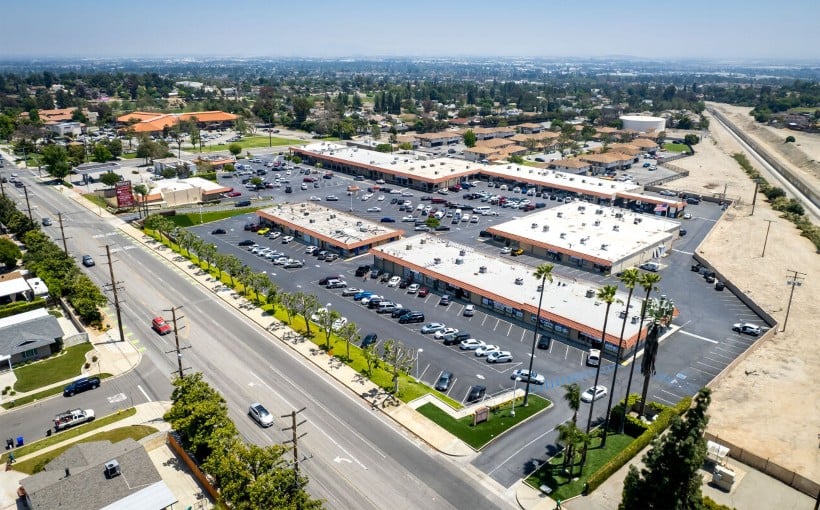**The Promise and Challenge of Artificial Intelligence in Retail Real Estate**
Artificial intelligence (AI) is increasingly being recognized as a transformative force in the world of commercial real estate (CRE), particularly in retail leasing. As VTS’ Ryan Masiello recently noted in Forbes, “it’s no surprise that AI has emerged as the next frontier in real estate technology.”
Retail leasing professionals are certainly taking notice.
“AI has come a long way in retail leasing over the past five years,” said Brent Loomer, Lead Managing Consultant at RealFoundations. “What used to feel like a future-facing concept is now showing up in practical, everyday ways across the leasing process.”
Despite its innovations, experts agree that AI is not poised to replace human roles in the industry. Instead, it serves to improve efficiency and streamline workloads in targeted ways. Tanner Olson, Managing Partner at Legend Partners, said AI has cut his workload by 1% to 10%, depending on the transaction. “It’s making agents more efficient, but it’s certainly not eliminating large portions of the workload,” he explained.
### The Growing Role of AI in Retail Real Estate
AI capabilities have expanded far beyond simple analytics. According to Jon Brecher, Vice President at JLL, today’s advanced systems can predict market trends, compare lease terms, provide lease abstracts, and assist in tenant matching.
Below are some of the areas where AI is currently making an impact:
#### Documentation
Leases and other forms of real estate documentation are notoriously extensive. AI tools can significantly reduce the time and effort required to manage these materials.
“You can take a 50-page lease and ask AI to do an abstract,” Olson explained. Though human oversight remains essential, AI does expedite the process.
Mark Sigal, CEO of Datex Property Solutions, pointed out that platforms like MRI Contract Intelligence and Prophia use a combination of optical character recognition (OCR), AI, and machine learning to extract key lease provisions and summarize them across portfolios or properties.
AI is also proving helpful during lease extensions and amendments. “You can feed an AI a lease and then have it create a drafted addendum or five-year extension,” said Olson, noting that while legal review is still required, it significantly reduces the preparatory workload.
Still, Sigal warned that AI-based document processing, while promising, is not fail-safe. “The technology is at the 80/20 stage,” he said. “It works well for common cases, but the exceptions often require significant human input, which can limit its overall value.”
#### Data and Analysis
AI is capable of running complex analyses to assess lease terms and profitability. Sigal noted that the technology can compute key metrics such as net present value, net effective rent, gross profit multiples, and job costs.
Tenants and landlords are also tapping into AI to review customer behaviors, trip patterns, and key demographics. However, data quality remains a top concern among experts.
“Clean, well-structured data results in smarter models,” stated Loomer. “Without it, AI is just automating bad assumptions.”
Stephanie Skrbin, a broker with Axiom Partners, emphasized the importance of human intelligence in interpreting market data. “Dealmakers only share information with people they trust, so AI won’t have the full scope of market info that a human with boots on the ground does,” she said.
There are also privacy concerns associated with AI. Brecher pointed out that some AI applications are restricted on company platforms due to security risks.
#### Negotiation Support
AI can also support the leasing negotiation process. Loomer explained that AI tools can offer “prepared clause language based on past deals,” providing teams with stronger starting points for discussions.
Sigal added that tools like ChatGPT and Anthropic can guide users through strategy development, gap analysis, and client pitches. He referenced LinkedIn founder Reid Hoffman, who describes AI as an “Intelligence Amplifier” that can enhance professional decision-making.
Nevertheless, human expertise remains critical. “AI is not a substitute for human judgment,” said Loomer. “While AI can highlight trends and opportunities, it still takes experienced professionals to apply context and make sound leasing decisions.”
### Current Challenges and Future Potential
Despite its benefits, AI adoption faces hurdles. These include high implementation costs and challenges related to integrating AI with legacy systems. Brecher also emphasized the need for human oversight due to the possibility of bias in algorithms. Understanding legal and ethical considerations is equally important.
Furthermore, relationship-building remains a core component of successful leasing. Skrbin noted: “AI can certainly be a valuable resource, especially as the technology advances. But it should never replace picking up the phone and talking to people.”
That said, experts agree that AI will continue to expand its role in retail real estate.
“As predictive analytics advance, teams will be able to model expected sales performance and occupancy costs with greater precision,” Loomer said. “This will support stronger deal structuring, smarter tenant selection, and more informed long-term planning.”
Brecher added that AI improvements may soon enable better tracking, note-taking, follow-ups, and faster email summarization — all contributing to a more efficient, data-driven leasing process.
Ultimately, experts view AI not as a replacement for human professionals, but as a tool to enhance their capabilities. “By removing manual bottlenecks and surfacing smarter insights, AI gives leasing professionals more time and better information to apply their experience, intuition, and creativity to each deal,” Loomer concluded.



